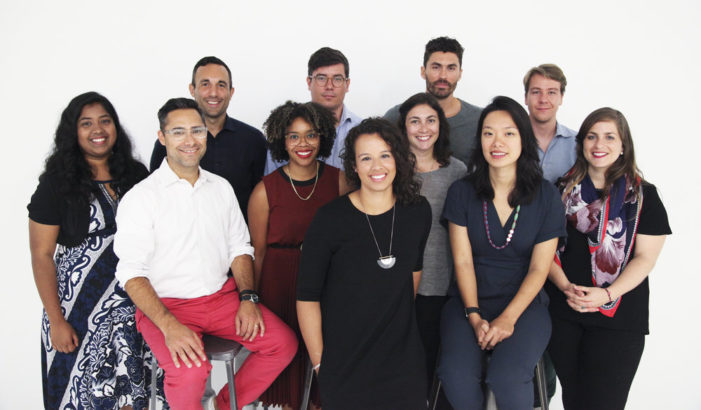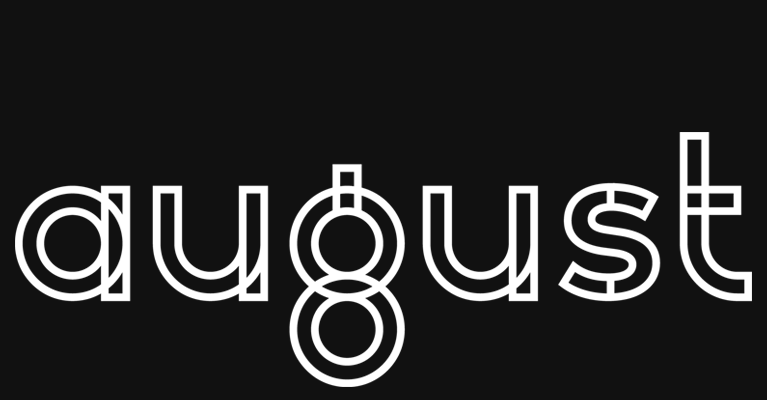Once upon a time, I made a living as an IT consultant for a company called Accenture. For most people, Accenture is the company that has huge, strange ads in airports across the nation. For their 375,000 employees, it’s a way of life. My life was interesting and fast-paced—I was on an airplane twice a week, always meeting new people, living out of a suitcase, and I had a job that didn’t make sense to my parents. It was great.
After a while, things felt decidedly less glamorous. The excitement of Monday morning flights gave way to reflections on how horribly inefficient and backwards the traveling consultant lifestyle was. At the peak of the madness, I was clocking roughly 40 hours per month of travel alone. Drive to the airport. Fly. Take a rental to the client site. Work. Drive to the hotel. Work onsite for a week. Drive to the airport. Fly back. Drive home. Wash, rinse, repeat.
There were several indicators that the big company culture was a poor fit. One was that success revolved less around being good at the job, and more about being good at the game. Another was the expectation of workaholism—I was once on a project where we were at the office until 10pm every day. I didn’t see much of the sun that winter.
I sometimes wonder if I’d still be working there if the organization had been more responsive. It’s unfortunate that I “churned out” without finding a role that was more aligned with my interests and skills, but in fairness, not many companies are designed for employees to move laterally.
Inclusion and Equity
My work around inclusion and equity this year has illuminated how much privilege I’ve enjoyed in my career. Indeed, I took for granted that the opportunities afforded me were largely a result of sacrifices made by my parents and sheer good fortune.
Part of my internship with Convergys was in their Global Diversity department in 2005 through INROADS, an organization that placed “talented underserved youth” like me in Fortune 500 internships. Between the leadership development and mentoring I received, I considered my success in corporate America—and as a black man—to be a foregone conclusion.
In the intervening years, I’ve become more familiar with the struggles experienced by many of my colleagues of color as they sought out their version of the American dream. Bias—unconscious and otherwise—manifests itself in subtle and devastating ways. I’ll share one statistic here:
“Job applicants with white names needed to send about 10 resumes to get one callback; those with African-American names needed to send around 15 resumes to get one callback.”
Setting aside microaggressions endured by persons of color from sidewalks to subways and back again, the reality of simply making a living in America for many folks is downright dismal. Add to this the high profile police shootings, uprisings in major cities across the nation, and political developments that boggle the mind…and you have a fairly alarming confluence of factors to contend with.
So, what’s a company to do? What does inclusion and equity entail? And how do thoughtful and forward-looking organizations prepare themselves for success armed with an increasingly diverse workforce?
The Future of Work
The hardest part about the work of inclusion and equity isn’t the tactical strategies employed to attract, retain, and support diverse candidates. The hardest part is overcoming the aversion we have to broaching the topic in the first place. In our hyper-connected world of Medium posts, viral Tweets and outrage theater, it’s not hard to understand why so many organizations are afraid to get it wrong. But that’s no excuse.
The best time to start thinking through workplace diversity is two years ago. The next best time is right now. Slogans, taglines, and panels will only get you so far, however. The day will come when a full-throated commitment to the kind of company you want to build will be required. Not deciding is a decision, too.
August is a fitting example of a company willing to walk the talk of diversity and inclusion. Despite this Brooklyn-based consulting firm being founded by an all-white team of two women and three men, today a photo of their team could double as stock photography for “diverse team.”

How did this happen?
It started with a commitment. In the words of Mike Arauz, August’s president:
“We needed to put more effort into attracting strong candidates. And this challenge gave us an opportunity to revisit our commitment to diversity. Knowing we had to take action to recruit new candidates, why shouldn’t we take action that would help to increase the diversity of our team, instead of maintaining what we’ve got or making us even less diverse?”
And take action they did.
They:
- made gender diversity a priority on day zero;
- used inclusive language when talking about themselves in public;
- refuse to speak at events or on panels without women;
- built a Twitter list of women, people of color, and LGBTQ folks;
- reached out to their network for diverse perspectives;
- sponsored a popular black podcast; and
- quantified diversity outreach progress through an anonymous, optional survey sent to applicants
What’s it like to work for August? In the words of Krys, a black woman who shared her thoughts in a 90 day retrospective:
August has lived up to more than I could have expected those first 90 days: During my first week I played a major role in deciding our next hire, in week two I helped to design our business strategy and goals for 2016 and beyond, week three I took my first international business trip to the Dominican Republic to lead a weekend-long executive training with the C-suite of a digital marketing agency.
Much of what we accept as normal in organizational culture comes from the industrial age—right down to 40 hour weeks. Thankfully, options are growing for motivated professionals who want to solve interesting problems and do work that matters (without feeling like a cog in a machine).
If working for a new kind of consulting company that helps organizations realize their potential to make a meaningful dent in the world sounds interesting to you, check out August’s career opportunities. They’re changing the Fortune 500 for the better, and they’re going to need some help.
August is starting a revolution in the way organizations work, and I’m really glad to announce them as the latest Abernathy sponsor.
